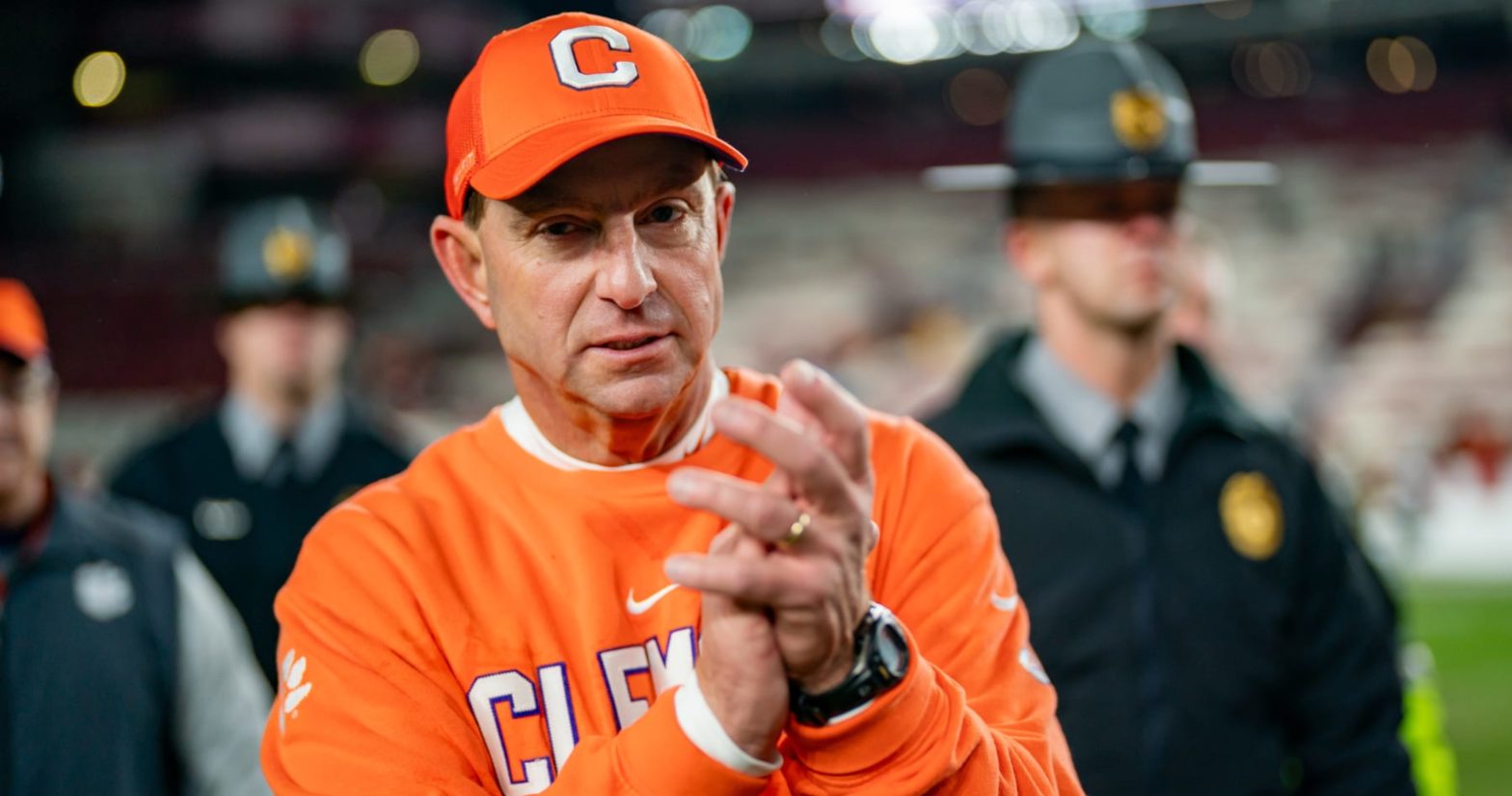Clemson University would face a steep financial challenge if it decided to part ways with head coach Dabo Swinney. His current contract includes a massive buyout clause of $60 million in both 2024 and 2025, decreasing slightly to $57 million in 2026, according to Michael Ginnitti of Spotrac. This significant financial obligation reflects the university’s commitment to Swinney through the 10-year, $115 million extension he signed in 2022, which carries an average annual salary of $11.5 million.
Dabo Swinney’s Historic Achievements
Swinney’s tenure at Clemson has been marked by exceptional success. Taking over as head coach in 2008, he has led the Tigers to a 170-44 record, capturing eight ACC Championships and two national championships.
These achievements have solidified his legacy as the winningest coach in Clemson history and justified the lucrative contract he was awarded. However, the team’s recent struggles, including a 34-3 season-opening loss to Georgia in 2024, have raised questions about whether his performance can meet current expectations.

Struggles with Modern College Football Strategies
Swinney has faced criticism for his resistance to adopting newer methods of team building. Unlike many of his peers, he has avoided relying on the transfer portal to bolster his roster, a move that could leave Clemson at a disadvantage in future seasons. With the Tigers failing to reach the College Football Playoff since 2020, the pressure is mounting for the program to adjust its approach. The blowout loss to Georgia only amplifies concerns about whether Swinney can keep pace with evolving competitive demands.
Despite these issues, moving on from Swinney presents significant obstacles. His history of success and the massive financial implications of his buyout make such a decision both challenging and costly. While Clemson must find ways to improve its performance, Swinney’s track record and the financial stakes involved ensure that any consideration of his departure will be a complex and heavily scrutinized process.
